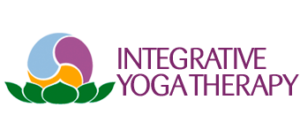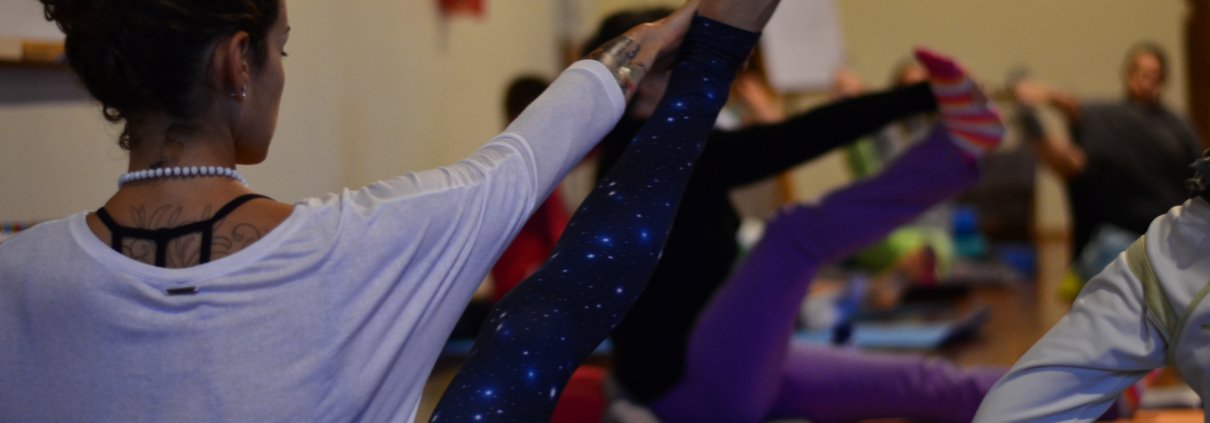History and context of Integrative Yoga – Yoga for the health of the whole person
by Joseph Le Page
Integrative Yoga began in the early 1990’s as a training program in Yoga and mind-body health. The mind body health movement was gaining acceptance through an understanding of the ways that both positive and negative mind states affect both health and healing. Of course, this is something that Yoga had understood for millennia. The Yoga Vasistha from the 5th century presents this simply and clearly: “good health comes from good thoughts and illness is the effect of negative thinking”. So, although mind-body health is not new, scientific research into the effects of attitudes and lifestyle on health is relatively new. Integrative Yoga Therapy, founded by Joseph Le Page in 1993, was the first training program to explore the interface of Yoga and mind-body health and healing. The first Integrative Yoga Therapy training in Brazil was held in 1996.
The students in this program were mostly Yoga teachers who wanted to understand the mind body dimension and include it in their work both with therapeutic groups and in one-on-one Yoga Therapy sessions. What we discovered was that the Yoga teachers entering our Integrative Yoga Therapy Training Program lacked many areas of knowledge in Yoga theory and practice that provide a foundation for more advanced studies. Some lacked a technical understanding of the Yoga postures; others lacked an understanding of the spiritual context of the Yoga practice and many lacked teaching and communication skills. Joseph Le Page and Lilian Aboim created the Integrative Yoga Teacher Training Program to meet the need for a fully prepared teacher of Yoga for the health of the whole person. This comprehensive Yoga Teacher Training program has been offered at Enchanted Mountain Center in Garopaba, Santa Catarina since 2003.

There are a number of core principles that form the foundation of the Integrative Yoga Teacher Training Program and make it unique:
Yoga for the health of the whole person – Integrative Yoga classes provide a balanced approach to health for all dimensions of the person, physical, energetic, psycho-emotional and spiritual.
Yoga poses within the context of overall human development – The yoga poses are powerful vehicles for health and healing and our students develop in depth mastery of them, not as ends in themselves, but as means for becoming a whole human Being.
Experiencing the benefits of Yoga class in daily living – The skills and insights students gain about themselves and their lives in Integrative Yoga allows them to take the benefits of the class beyond the Yoga mat and integrate them into daily living as an enhanced sense of appreciation, inner peace, fulfillment and meaning.
Integration of all Facets of Yoga in the Yoga class – The health and wholeness cultivated through Integrative Yoga is supported by a balanced integration all the Hatha Yoga tools and techniques in each class including asana, pranayama, mudra, affirmation, relaxation and meditation.
Yoga classes appropriate for multiple levels – Integrative Yoga teachers develop the skills to offer Yoga classes at a wide range of abilities and also to adjust the class to individual needs so that different levels can practice effectively in the same class.
Classes with themes that give each experience focus and meaning – These themes can relate to particular areas of practice such as developing greater strength or balance, and can also be used to cultivate specific qualities such as Self-esteem, inner peace and clarity. These qualities are sometimes supported by mudras e affirmations that allows them to be integrated more fully.
Experiential learning – During the Teacher Training Program, all subjects including Yoga Philosophy and anatomy and physiology are taught experientially, by doing and feeling in the mind and body, instead of intellectually or theoretically, thereby allowing them to be integrated completely. The teachers can then apply this experiential approach to learning in their own classes.
Teachers graduate fully equipped and ready to teach – because of the in-depth nature of the program and a ten-step methodology that covers every aspect of Yoga pedagogy from greeting the students to final relaxation, new teachers of integrative Yoga complete the course fully prepared to offer Yoga classes to the public. Each new teacher conducts a full class to a small group of fellow students before the conclusion of their training program.
Supportive teaching resources – Integrative Yoga Publishing offers a wide range of support materials for Yoga study including the Yoga Teacher Toolbox and Mudras for Healing and Transformation, among the most widely used texts for all teacher training programs both in the US and Brazil. New products are constantly being developed and introduced.
Focus on the student rather than the teacher – Some forms of Hatha Yoga are hierarchical and dogmatic with a focus on the organization and a guru or teacher. Integrative Yoga focuses on the unique individual needs of each student as a means to whole person health and healing without any form of religious hierarchy.
Each Yoga teacher is unique – some forms of Hatha Yoga teach a uniform sequence or sequences and the student molds themselves to that methodology. At Integrative Yoga, we provide a solid foundation in all aspects of Yoga teaching that allows each of our teachers to develop their own unique, creative approach to Yoga teaching based on their interests and their student’s needs. This individualized approach also reduces dramatically the possibility of injury.
Creativity and enjoyment in Yoga classes – Integrative Yoga teachers learn a wide range of special techniques ranging from Somatic movements to partner Yoga, Yoga with slings and the use of the cards from the Yoga Toolbox and Mudras to make their classes an absorbing and creative learning experience that student return to ongoingly.
Self-knowledge – The well-rounded focus on all the aspects of Yoga supported by the experiential methodology allow teachers and students to cultivate a lived experience of the essence of Yoga through a growing sense of inner freedom, autonomy, inner peace and a knowing of our life’s true purpose and meaning.




